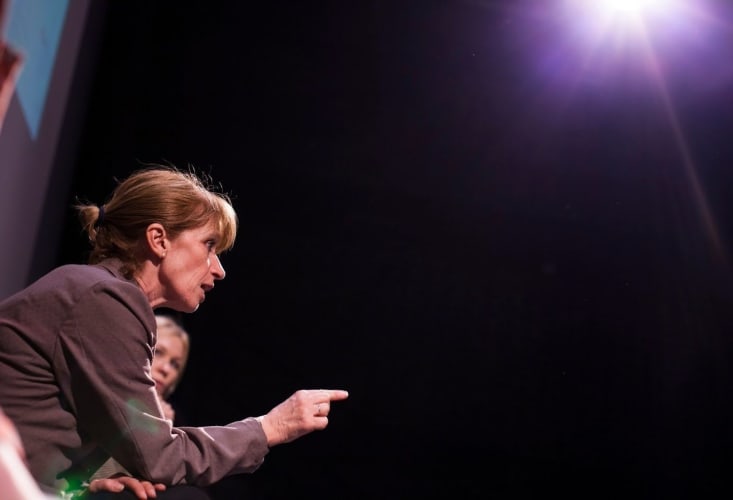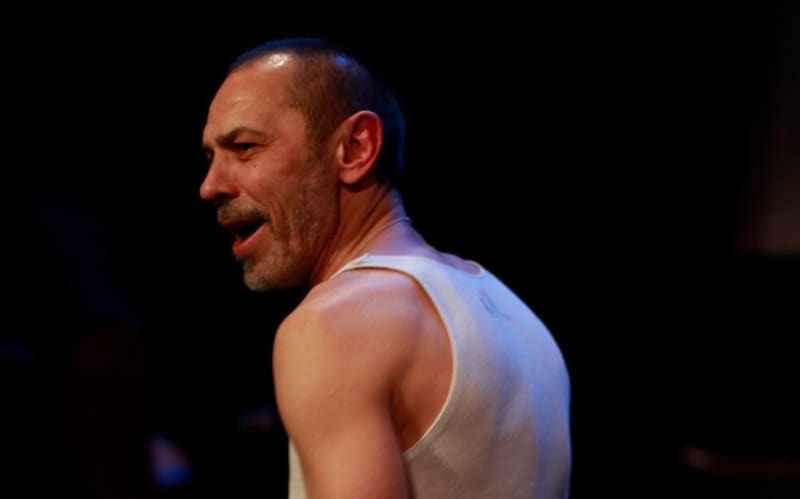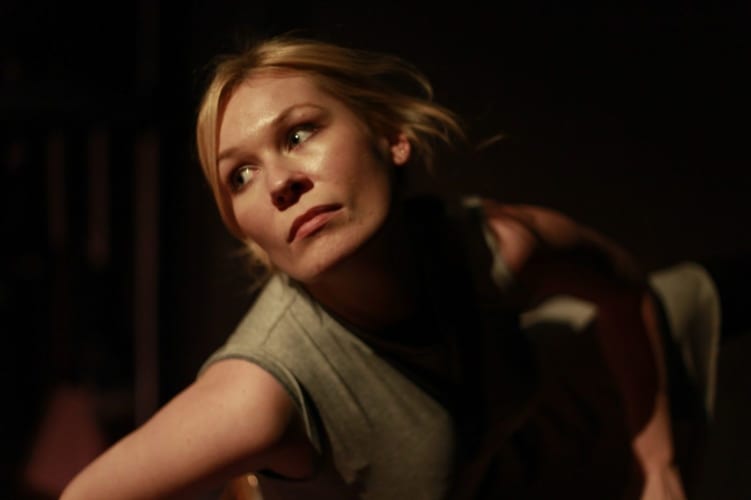The 1986 explosion at the Chernobyl nuclear power plant in the Soviet Union released a radioactive cloud across Europe and contaminated huge areas of land. People were killed, homes evacuated and the consequences are still being felt today.
It also demonstrated the confused rigidity of a Soviet Union unable to properly admit what was happening even when other countries were reporting increased radiation levels.
Germán D’Jesús’s adaptation of extracts from Svetlana Alexievich’s remarkable oral history of hundreds of those who experienced these events creates an engaging performance of numerous voices.
In a series of mostly short monologues, we hear of the way local people initially responded, the desperate attempts to put out the fire, the suffering inflicted and a running commentary on the incompetence of the authorities.
Many of those living nearby failed to immediately recognise the fire’s danger. People would travel in to see the fantastic display of colours. As one person comments, “we didn’t know death looked so beautiful.”
Workers and soldiers were thrown at the disaster with inadequate equipment and protective clothing. One of the absurd slogans that appeared was “Fight the atom with the shovel.”
A scientist describes his frustrating attempts to get the authorities to take action that would protect people.
There are stories of sacrifice and even a willingness to tell jokes even in these terrible circumstances.
The set is minimal, the light sombre and the characters we see only occasionally identified. It creates a grim mood of many voices, that reflects the chaos and injustice of what happened.
The things we hear are shocking. They hold our attention but for most of the time remain remote and give us little opportunity to empathise with a particular individual.
However the most poignant section of the show is the extended account of Lyudmilla Ignatenko (Kim Christie), a twenty-three-year-old, newly married woman who, early in the morning of the accident, sees her husband, a fire-fighter, being called out in his shirt sleeves to deal with the fire.
By seven that morning, he was isolated in hospital having absorbed high levels of radiation. She gives an extraordinarily moving account of his final days and the later birth and death of her daughter from the effects of radiation.
There are now hundreds of nuclear power stations across the world, many of them aging and all of them producing waste that remains dangerous for long periods.
Above the stage at the end of the performance was projected the following words of Svetlana Alexievich: “Sometimes I felt that I was recording the future.”


